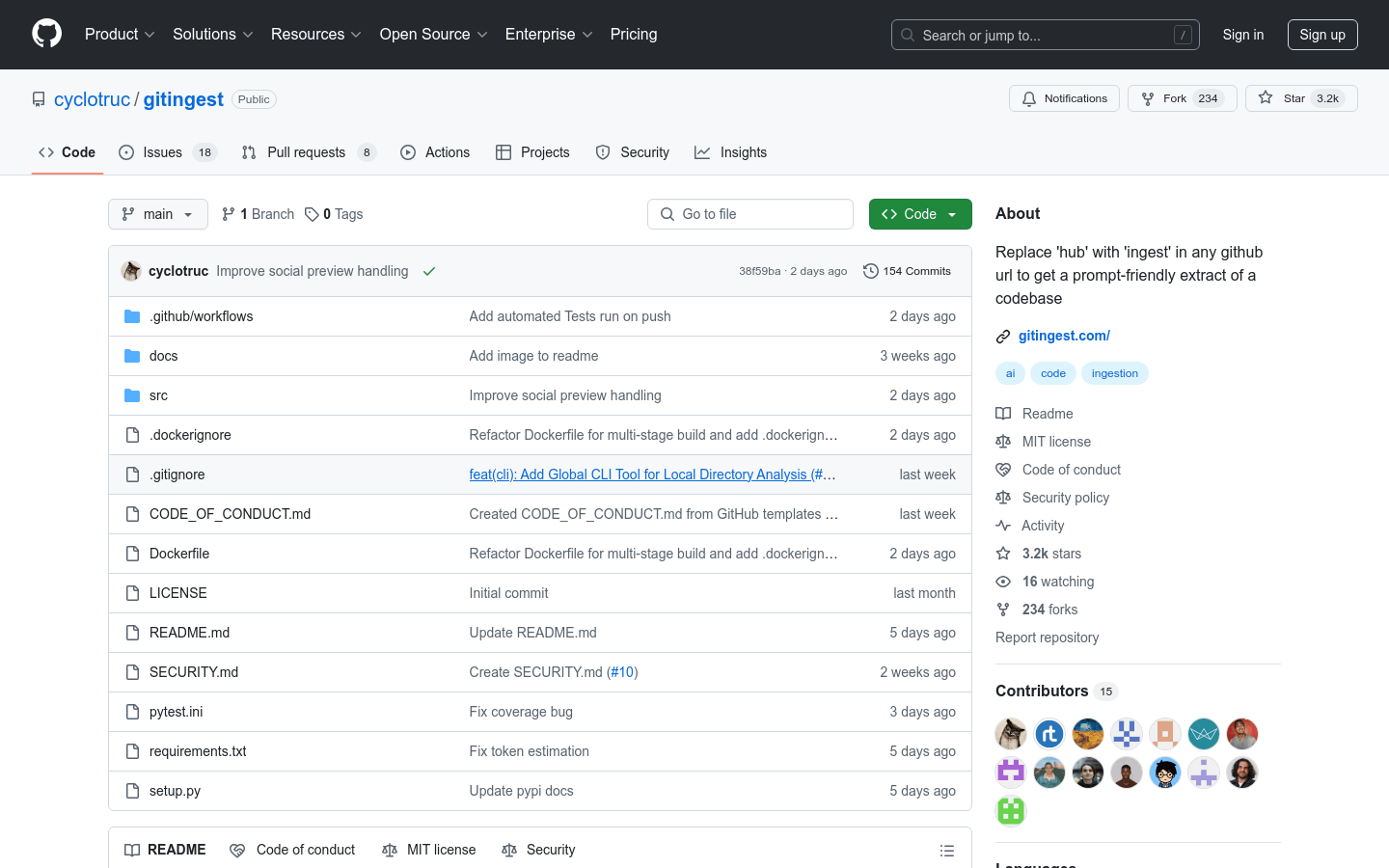

Gitingest
Overview :
GitIngest is a tool that converts any Git repository into a text summary appropriate for large language models (LLMs). Its key advantage lies in providing easily understandable code context, optimized output formats for LLM prompts, and statistics such as file and directory structure, extraction size, and token counts. GitIngest can be operated as a command-line tool or imported as a Python package. It serves as a powerful aid for developers and researchers, facilitating their understanding and analysis of codebases, particularly in the realms of natural language processing and machine learning.
Target Users :
The target audience includes developers, data scientists, and researchers who need to understand and analyze codebases, especially in the fields of natural language processing and machine learning. GitIngest helps them efficiently interact with large language models by providing easily comprehensible code context and optimized output formats.
Use Cases
A developer uses GitIngest to extract code from a GitHub repository for local analysis.
A data scientist utilizes GitIngest to convert a codebase into a text summary for training machine learning models.
A researcher employs GitIngest to comprehend the code structure and history of open-source projects.
Features
- Retrieve text summaries from Git repository URLs or directories.
- Optimized output format suitable for LLM prompts.
- Provide statistics including file and directory structure, extraction size, and token counts.
- Command-line tool that supports Linux systems.
- Usable as a Python package.
- Support analysis of codebases from both URLs and local paths.
- By default, summaries are written to a text file in the current working directory.
How to Use
1. Install GitIngest: Run `pip install gitingest` in the command line.
2. Use the command line tool: Enter `gitingest /path/to/directory` or `gitingest https://github.com/cyclotruc/gitingest` in the terminal to analyze a codebase.
3. View results: Upon completion, the summary will be saved by default in a file named `digest.txt` in the current working directory.
4. Use as a Python package: Import the `gitingest` module in your Python code and call the `ingest` function with the path or URL as an argument.
5. Self-deployment: Build and run GitIngest's image via Docker, and access it at `http://localhost:8000`.
6. Contribute code: Fork the repository on GitHub, make modifications, and submit a Pull Request.
Featured AI Tools

Pseudoeditor
PseudoEditor is a free online pseudocode editor. It features syntax highlighting and auto-completion, making it easier for you to write pseudocode. You can also use our pseudocode compiler feature to test your code. No download is required, start using it immediately.
Development & Tools
3.8M

Coze
Coze is a next-generation AI chatbot building platform that enables the rapid creation, debugging, and optimization of AI chatbot applications. Users can quickly build bots without writing code and deploy them across multiple platforms. Coze also offers a rich set of plugins that can extend the capabilities of bots, allowing them to interact with data, turn ideas into bot skills, equip bots with long-term memory, and enable bots to initiate conversations.
Development & Tools
3.8M

















